
Dental Implants — Jacksonville, FL
Lifelong Tooth Replacement
Over the past two decades, dental implants have quickly become the most popular method for replacing missing teeth, and they are universally loved by dentists and patients around the world. Why? Because compared to every other option, they most closely resemble real teeth, both when it comes to appearance and strength. At Khoi Dental Group - Formerly Carlson Dental Group, we’re able to provide comprehensive dental implants in Jacksonville, FL to help our patients rebuild their smiles for life. If you’re ready to close annoying gaps or finally get a denture you can trust to stay in place, contact us today.

Why Choose Khoi Dental Group - Formerly Carlson Dental Group for Dental Implants?
- Dental Implants Placed In-House by Experienced Dentists
- Modern Dental Technology Utilized to Plan Your Care
- Multiple Financing Options Available
What Are Dental Implants?

Each of your teeth have two basic parts: the crown you can see, and the root that holds it firmly within the jawbone below the gum line. Restorations like bridges and dentures only bring back the crown, but dental implants provide the only way to replace the root as well. A small titanium post is positioned within the jawbone, and this serves as the foundation for a new crown, bridge, or denture. Because dental implants are held within the jawbone just like natural teeth, you can rely on them like real teeth as well. For this reason, dentists often recommend them over traditional tooth replacement solutions to patients who are eligible for treatment.
The Dental Implant Process

If you have been living with empty space in your smile for too long, you’re probably already considering getting long-lasting, reliable dental implants in Jacksonville that can act as stable roots for a crown, bridge, or denture. If you think implants might be right for you, your first step is to call the Khoi Dental Group - Formerly Carlson Dental Group and schedule a consultation with Dr. Le; they can walk you through the process step by step so that you can be comfortable when you visit our office for this life-changing treatment.
Initial Consultation

Are you a candidate for dental implants? This is the question we need to answer before making any plans when it comes to tooth replacement. Over the course of your consultation, we’ll take X-rays of your mouth in order to examine the underlying bone structure; we’ll also look for signs of gum disease or other potentially complicating oral health issues. Ideally, you should already have a sufficient amount of bone in your jaw as well as infection-free gums. However, depending on what we find, we may recommend a bone graft or periodontal therapy before implant surgery. And of course, we’ll need to determine exactly how many implants you’re going to need to complete your smile!
Dental Implant Surgery

The next phase is the surgery where the implant posts themselves will be inserted into your jaw. Thanks to the expertise and training of Dr. Le, we can place your implants right here at our practice – no need to refer you to a separate oral surgeon. Your mouth will be numbed during the procedure, and small holes will be made at carefully chosen points in your jaw. Note that at this point, we normally won’t be ready to top the implants with restorations; the posts won’t be ready to bear the load until after the next phase.
Osseointegration & Abutment Placement

Osseointegration is the process of bone tissue fusing with the titanium implant posts, and it begins as soon as the surgery is complete. Eventually, the implants will be completely integrated to the point where they could almost be considered part of your body. Typically, osseointegration takes several months. Once it’s complete, you may require an additional surgical procedure in order to receive abutments, which are the pieces that your prosthetic teeth will attach to. Note that your abutment will be visible until you’ve received your new teeth, which normally happens about two weeks later after the gums have had a chance to heal.
Delivery of Final Restoration

Before you can receive a dental restoration, we’ll have to take impressions of your mouth with the abutment-topped implants in order to ensure a perfect, natural-looking fit. We’ll call you back to our office once the restoration is ready. Note that while there are implant prosthetics that are removable, most of the time they’ll be permanently fixed in place; this means you’ll have to brush and floss them as you normally would for natural teeth.
Benefits of Dental Implants

When it comes to replacing missing teeth, there’s a reason why Khoi Dental Group - Formerly Carlson Dental Group most often recommends dental implants. Why is that? Are they really that special or different from traditional dentures and bridges? Well, when you look at the advantages that come with dental implants, you quickly see just how appealing they truly are for those who have lost teeth. Below are some of the benefits you can enjoy when you choose to complete your smile with dental implants.
Youthful Appearance

With dentures and bridges, only the top portion of the missing teeth is replaced. This leaves the jawbone without tooth roots to stimulate it. As a result, it quickly loses density, and your face changes shape. Instead of retaining your youthful profile, you’ll develop that sunken, older appearance. With dental implants, the jawbone remains stimulated and holds its shape, helping you look your best for as long as possible.
Long-Term Savings

If you only look at the upfront cost of tooth replacements, dental implants usually are the most expensive option. However, dentures and bridges have to be adjusted and replaced every few years. Over time, these costs add up. But dental implants can last for 30 years or even longer, which means they become the smarter investment in the long term compared to dentures or bridges.
Confidence

Tooth loss can have a huge impact on your self-esteem. Even after replacing your missing teeth with dentures, you can feel self-conscious and worry that they may slip out of place. They tend to do that while you talk, eat, or laugh, potentially creating an awkward situation in professional or social settings. However, dental implants do not move at all! They are firmly embedded in the jawbone, just like real teeth, so you can rely on their stability. You have the freedom to speak up, laugh until your sides hurt, and eat the foods you love.
Quality and Length of Life

Did you know that denture wearers tend to live shorter by an average of 10 years? Due to weaker biting force (between 75 and 96 percent less powerful than before), denture wearers are often unable to sustain a healthy diet of nutritious foods, leading to many medical conditions. These conditions not only can shorten your lifespan but also impair your quality of life in the meantime. The solution is to attach your dentures to dental implants, which act just like natural tooth roots. That way, you can lead a healthier lifestyle.
Who Dental Implants Can Help

If you are missing any number of teeth and have decent oral and overall health, then dental implants are definitely an option you should be considering. Our team can customize your treatment based on your unique needs, and our dental implant dentist in Jacksonville will ensure that your results provide the best opportunity for you to live life without the stress and difficulties you previously faced with tooth loss. Keep reading to discover who is a good candidate for this versatile form of treatment.
Who is a Good Candidate for Dental Implants?

Most individuals who are missing one, multiple, or all their teeth can expect to discover when they can move forward with dental implants. While some will be cleared to undergo dental implant surgery much sooner, others will need preparatory treatments to avoid potential failure once these permanent prosthetics are in place.
During a consultation with Dr. Le, we’ll determine if you need periodontal therapy, tooth extraction, or even a bone graft. Your gums, bone, and existing teeth must be evaluated to determine if your existing smile is in good enough shape to support your artificial teeth once they are firmly in place.
Missing One Tooth

Rather than placing a bridge that requires multiple teeth to be shaved down and reshaped, we can simply use a single implant to support a porcelain crown. This crown won’t rely on the neighboring teeth to stay in place, giving it a more natural look and comfortable fit compared to a traditional restoration.
Missing Multiple Teeth
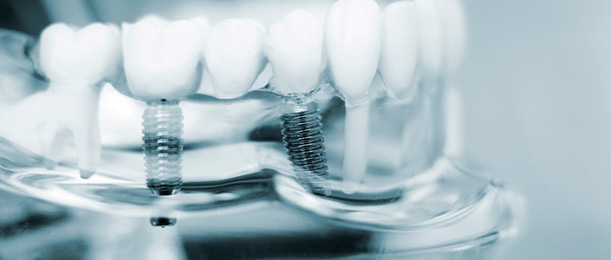
One or two implants can be used to anchor a bridge or partial denture to the jawbone to replace multiple teeth at the same time. This approach is not only much more cost-effective than using an implant for each tooth, but these prosthetics are also more stable compared to their removable counterparts.
Missing All Teeth
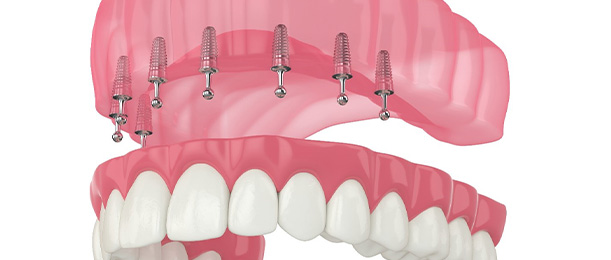
Even someone who has experienced total tooth loss can benefit from implant dentistry. A full denture can be attached to the jawbone using just four to six implants. In addition to being smaller and fitting better compared to removable dentures, implant dentures also bring back more of a person’s bite strength, enabling them to eat whatever they like with complete confidence.
Understanding the Cost of Dental Implants
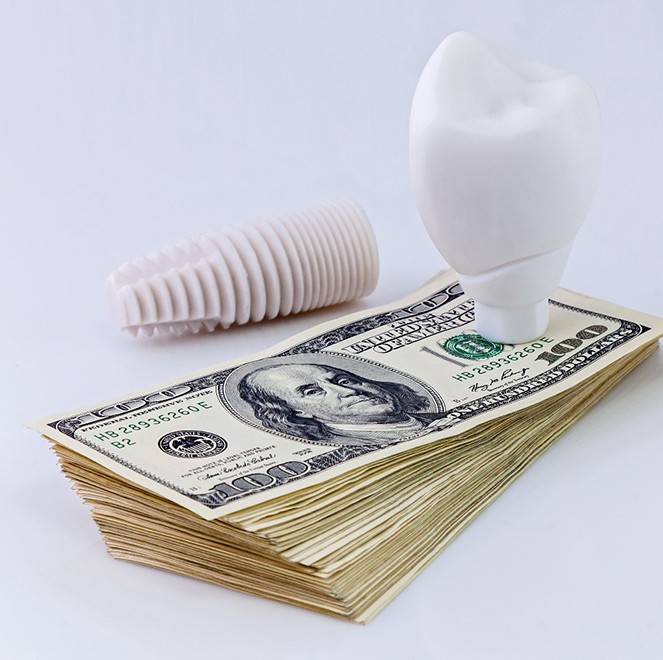
Are you strongly considering dental implants to replace your missing teeth? If so, Dr. Richard Carlson is ready to answer all the questions you might have about the process and cost for your new smile. After all, it’s no secret that implants are more costly than traditional restorative solutions (i.e. fixed bridge or dentures), but their benefits and longer-lasting results make them a more desirable and popular option. So, how much can you expect to pay for your new implants? Contact us today to learn more about this superior method of treatment and what we can do to ensure you get the care you need without breaking the bank.
Types of Dental Implants

Dental implants are, by far, the most versatile restorative solution available. When it comes to replacing your missing teeth, it doesn’t matter if you’re missing one or all your teeth, they are capable of bringing new life to your smile. The cost of your implant treatment will also depend on how many posts you need.
What are the Stages of Dental Implant Treatment?
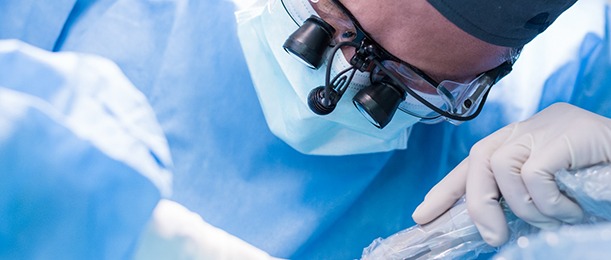
The process of receiving dental implants occurs in stages. From the initial consultation to the surgical positioning of your implants to the finalized placement of your custom restoration, each step incurs its own fee. During your consultation, we will examine your smile and take impressions that will serve as a blueprint for your restoration creation. We will also discuss the process of receiving implants and how much you can expect it to cost.
Are Dental Implants Worth the Investment?
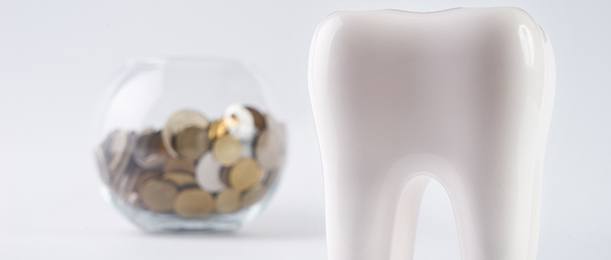
The benefits that come from having dental implants placed cannot be achieved with any other form of restorative tooth replacement. From their longevity and lifespan to their ability to provide a natural look and greater functionality when eating, speaking, or chewing, it is certainly safe to say that they are worth the investment.
Yes, dental implants do cost more upfront than a fixed bridge or denture; however, when you look at the continual maintenance needed with other more traditional solutions, it’s no surprise that dental implants are a preferred method of treatment.
Does My Dental Insurance Cover Dental Implants?

Most dental insurance companies do not cover the cost of dental implant placement. It is advised that you look at your policy and talk to a representative just to be sure. Some companies are beginning to understand that implants are more of a necessity than a “want” and will cover some or all of your treatment.
Even if your insurance company does not agree to cover the surgical aspect, they might agree to pay for your initial consultation, custom restoration, or any pre-implant dental work you might need (i.e. bone graft, sinus lift).
No matter the outcome, our team is here to help ensure you get the smile you deserve while staying within your budget.
Dental Implant Failure & Salvage

While it's rare for patients in Jacksonville to experience a failed dental implant, it can happen and requires immediate attention. At Khoi Dental Group, our highly skilled team offers dental implant failure and salvage services. If you notice any unusual discomfort near your implant posts, contact us right away. The sooner we know about your situation, the better chance we have of saving your new smile.
Learn More About Dental Implant Failure & Salvage
Dental Implant Technology

Before we place dental implants into a patient’s mouth, we start the process by putting together an extremely precise treatment plan. To do this, we create a highly-detailed 3D X-ray of a patient’s teeth and mouth using our CBCT scanner. This kind of image reveals much more detail about a patient’s dental anatomy than a regular X-ray, allowing us to provide better care and guarantee a short recovery.
Dental Implant Post-Op Instructions

Once your dental implants have been surgically placed in the jawbone, there is a recovery period. We will give you specific post-surgery directions to help you set your dental implants up for success. We want you to recover as comfortably and quickly as possible. If you have any questions or concerns, don’t hesitate to contact us.
What to Do Directly After Dental Implant Surgery

The top priority during the healing process is to leave the blood clot at the surgical site alone. This is what’s needed for the recovery to go smoothly. Here are some rules that you should abide by:
- Don’t spit. Instead, use a tissue or swallow your saliva.
- Don’t use a straw when drinking liquids.
- Don’t smoke immediately after your surgery.
- Keep your tongue and fingers away from the surgical site.
Common Side Effects When Recovering from Dental Implant Placement

You will likely experience some mild side effects for a few days after your surgery. Here are some of the most common ones:
- Bleeding: Minor bleeding is common for a few days after surgery. This will subside with gauze and light pressure.
- Swelling: For the first 72 hours after your procedure, inflammation is likely. Use a cold compress to reduce this.
- Discomfort: Soreness is normal after this procedure. This can be managed with your over-the-counter and prescribed pain medications.
Your Diet After Dental Implant Surgery

For the first few days after your procedure, you should stick to softer foods so that you don’t aggravate the surgical site. Here are a handful of suggestions to enjoy for this initial period:
- Mashed potatoes
- Yogurt
- Oatmeal
- Pudding
- Soup
- Scrambled eggs
- Pasta
- Ice cream
Post-Op Health & Oral Hygiene

You should brush your teeth as normal the day after your surgery. However, you should be especially careful to avoid the surgical site. To keep this area clean, gently rinse your mouth with salt water two to three times a day after your meals. When using mouthwash, be sure to choose one that doesn’t contain high levels of alcohol. This can aggravate the surgical site around your dental implant.
What to Do After Your New Teeth Are Attached

Now that your replacement teeth have been attached, the difficult part is over! When your new restoration at attached to your implant(s), you could experience some minor sensitivity, but this should be easy to manage with over-the-counter pain relievers. There shouldn’t be any swelling, bleeding, or extensive recovery. You will be ready to show off your new and improved smile!
Dental Implant FAQs

Are you feeling hesitant about replacing teeth with dental implants? We want you to feel as confident as possible about your future treatment, which is why you’re welcome to ask us any questions you have about the procedure before choosing it to rebuild your smile. Below, you’ll find a few of some of the questions we hear quite frequently as well as our detailed responses. If yours is not mentioned, please give us a call directly!
Does Getting Dental Implants Hurt?
Ahead of dental implant treatment, we administer local anesthetic to ensure no sensations are felt whatsoever during the placement of your implant (as well as the removal of any teeth if necessary). This means you can have confidence in your dental implant treatment being as comfortable as possible and virtually no discomfort being felt along the way. At most, you may feel a little pressure as we remove teeth and place the implant. You can also receive sedation if you’d prefer. Keep in mind that your mouth will be a little sore for the next few days after, which can be mitigated with cold compresses and painkillers. If your discomfort does not get better or worsens after a few days, call us.
What Can Cause Dental Implants to Fail?
Dental implant failure is extremely rare and only affects about 5% of patients on average. However, when it does occur, it’s typically for two reasons: peri-implantitis and failed osseointegration. Peri-implantitis is a type of infection that forms as a result of gum disease. It typically develops when the patient is not brushing or flossing enough, which can lead to damage of the bone and gums responsible for supporting the implant.
Can I Get Dental Implants If I’m Diabetic?
While it’s true that preexisting conditions can increase the risk of implant failure, those who have their diabetes under control and can manage their health during the healing process can expect success rates that are comparable to those who do not have diabetes. However, dramatically fluctuating blood sugar levels due to uncontrolled diabetes can negatively impact the healing process, causing it to slow down and make it more difficult for the implants to integrate. Talk with either your endocrinologist or primary care physician to make sure your blood sugars are manageable before starting treatment.
Are Dental Implants Tax Deductible?
There are many cases where you can deduct some costs for dental implants from your taxes, but you’ll need to make sure that you itemize your deductions instead of only taking the standard deduction. In addition, you’ll only be able to deduct expenses that are 7.5% or more of your annual gross income and you cannot deduct any portion of the procedure that will be covered by your dental insurance. This generally includes preparatory treatments and the restoration used to cover the implant. We recommend that you contact a certified public accountant or local tax attorney as tax rules are complex and change often.